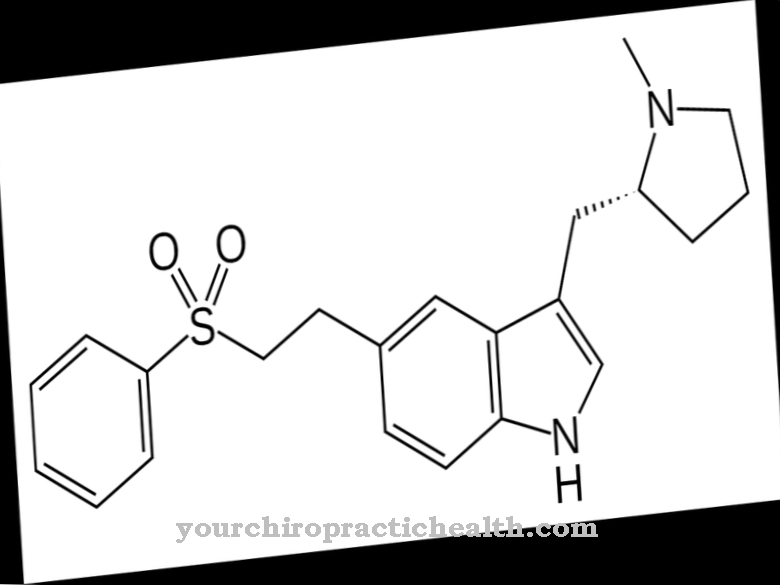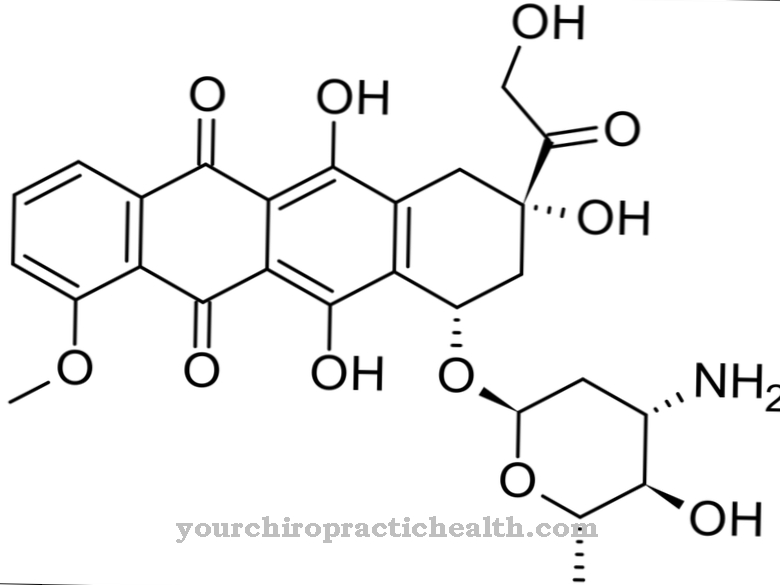Antimetabolites denote chemical compounds which inhibit the metabolism of natural metabolites. Due to their similar chemical structures, they have a wide range of effects on all physiological processes in that certain enzymes are blocked. Antimetabolites are used, for example, in the form of immunosuppressants or cytostatics for cancer therapy.
What are Antimetabolites?
In their chemical structure, antimetabolites are very similar to natural metabolites. This similarity causes the human metabolism to take over all the tasks of the body's own metabolites. The latter are completely suppressed when they are used. This blocks vital metabolic processes in the body cells and ultimately leads to their death.
So-called folic acid antagonists such as methotrexate and antagonists such as fluorouracil or cytarabine are now mostly used. Antimetabolites are also used for palliative care in cancer therapy for breast, stomach, colon, bone and pancreatic cancer as well as for leukemia.
However, since antimetabolites also damage healthy body cells, severe side effects almost always occur in the course of treatment. These side effects then require further treatment in order not to weaken the patient too much.
Pharmacological effect on the body and organs
The different medications that are used in chemotherapy are known as so-called cytostatics. These are antimetabolites. Cytostatics stop the cellular functions of the human body. These antimetabolites have the effect that the growth of malignant cancer cells is inhibited. This then causes the tumors to recur, i.e. they regress.
Normally, cell growth is subject to strict rules. In principle, healthy body cells only divide as often as is necessary for tissue function and its maintenance. In malignant tumor cells, this mechanism is disabled in the cell cycle and the degenerated cells divide in an uncontrolled manner and without hindrance. This is how a tumor develops.
Antimetabolites work right here, directly on the cancer cells. They are preferentially attacked. This influences different processes that are important for the division of cells. The cell division process is disturbed and the further growth of the cancer cells is hindered.
Medical application & use for treatment & prevention
All antimetabolites act like a false building block when the cancer cells' DNA multiply. In this way it is possible to destroy the genetic information in the relevant regions. The malignant cells can no longer divide.
The so-called folic acid antagonists belong to the cytostatics, as do the purine and pyrimidine analogs. These drugs are usually given intravenously to patients or with the help of infusions that are given in the form of drops. In this way, the antimetabolites are usually supplied together with common table salt. It is now also common to administer special medications in the form of tablets.
Many of these antimetabolites are highly toxic, so a wide variety of precautionary measures must be taken when administering them. This includes, for example, the use of face masks and gloves.
You can find your medication here
➔ Medicines to strengthen the defense and immune systemRisks & side effects
Most antimetabolites have the same side effects because, like all cytostatics, they prevent unnaturally proliferating, malignant body cells from growing. Unfortunately, this also affects the healthy cells. Since the so-called degenerate cells have their origin in healthy cells, the therapy cannot take place in a targeted manner. All cells that grow naturally are also affected by the effects of the treatment. These are mainly those who are responsible for blood formation. But hair growth and mucous membranes are also attacked.
Furthermore, the treatment with antimetabolites often leads to vomiting and nausea as well as a general feeling of illness. In the blood, the leukocytes and platelets are primarily affected. After about two weeks, the number of these blood cells has dropped so far that the immune system is only functioning to a limited extent. This makes the patient very susceptible to infections of all kinds.
It is also possible that organ functions may be impaired during treatment with antimetabolites. However, these side effects can largely depend on the type of medication.













.jpg)

.jpg)
.jpg)











.jpg)